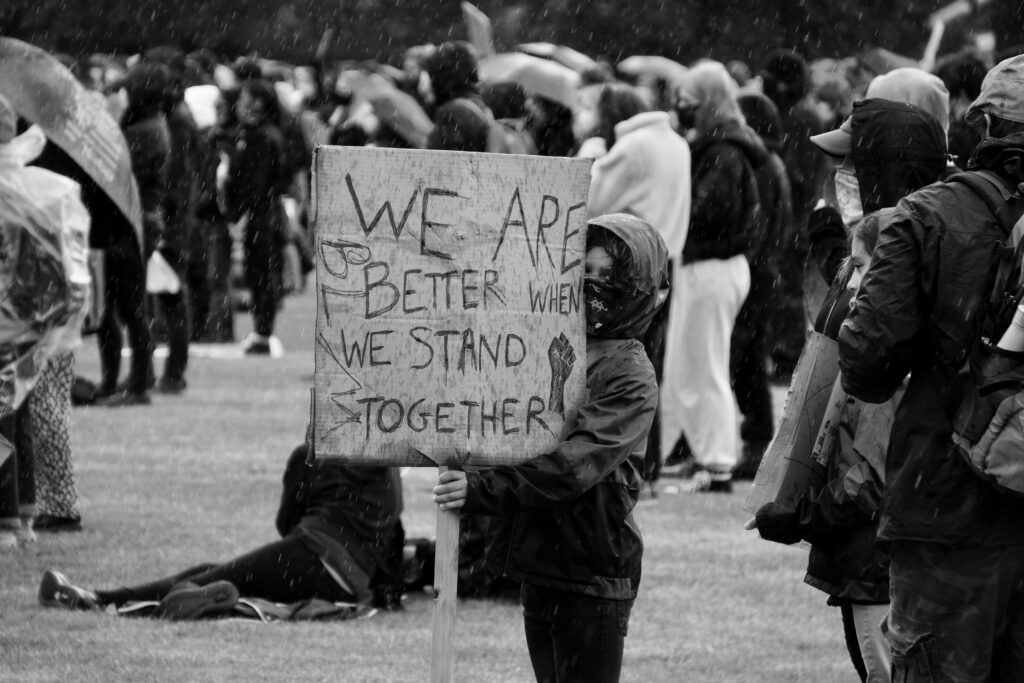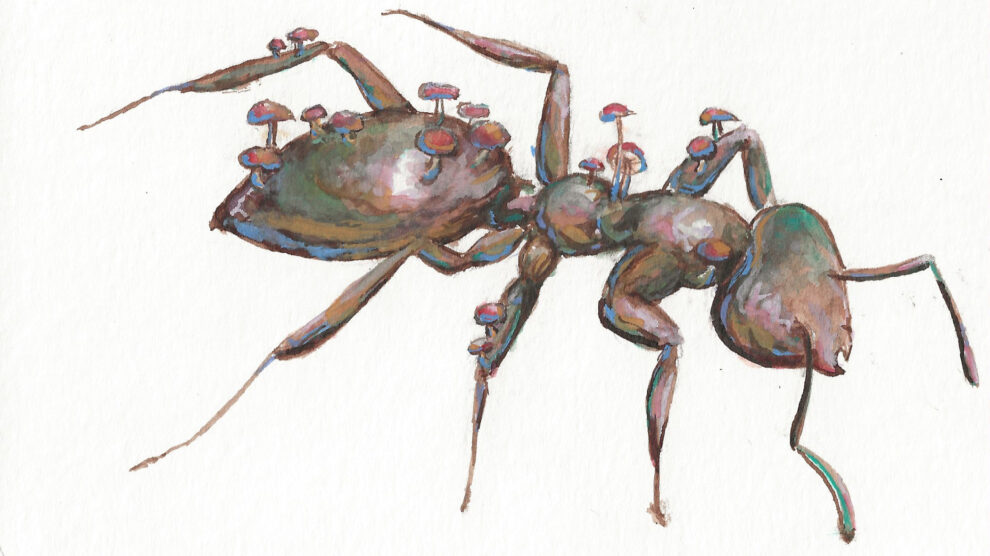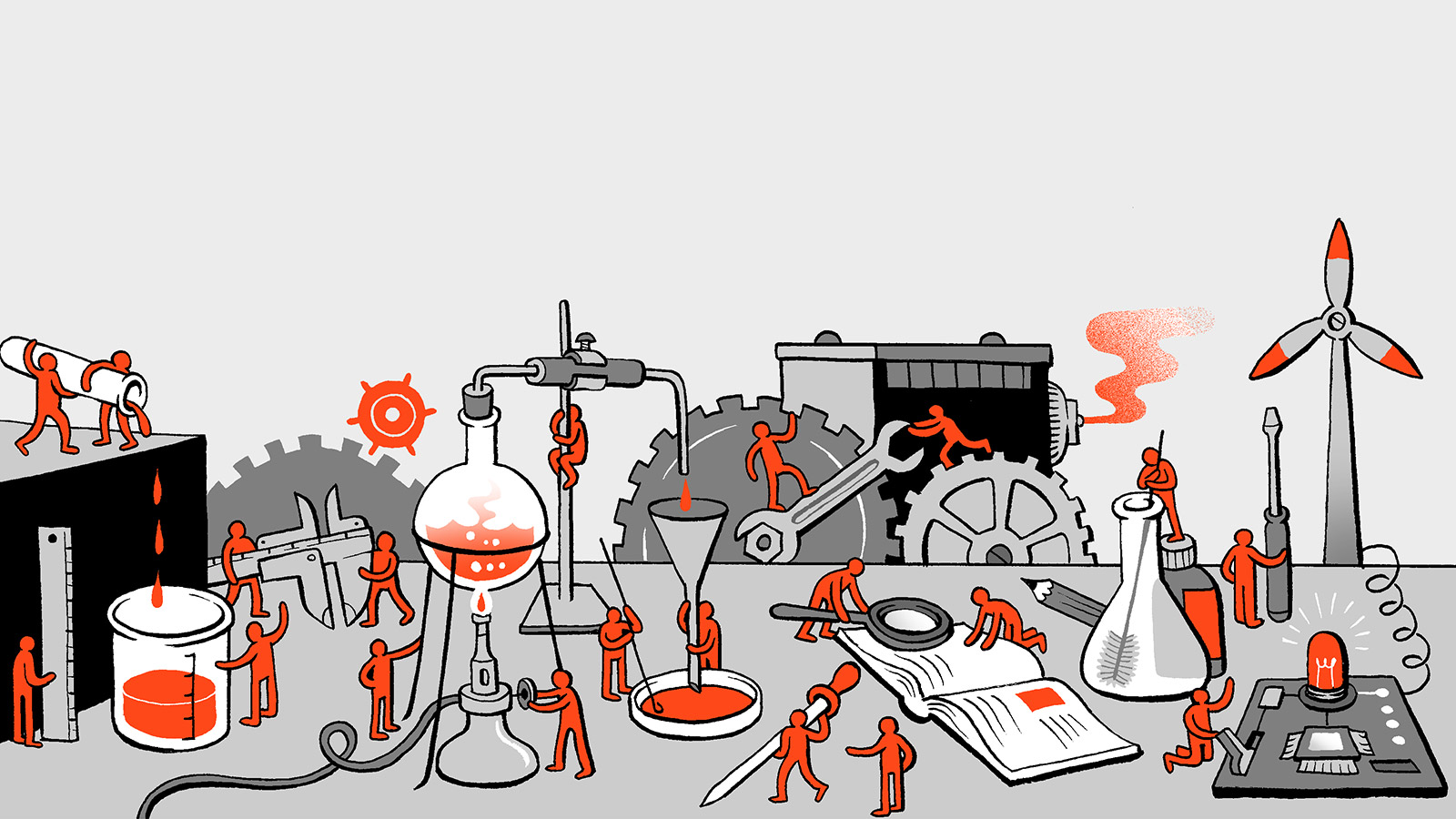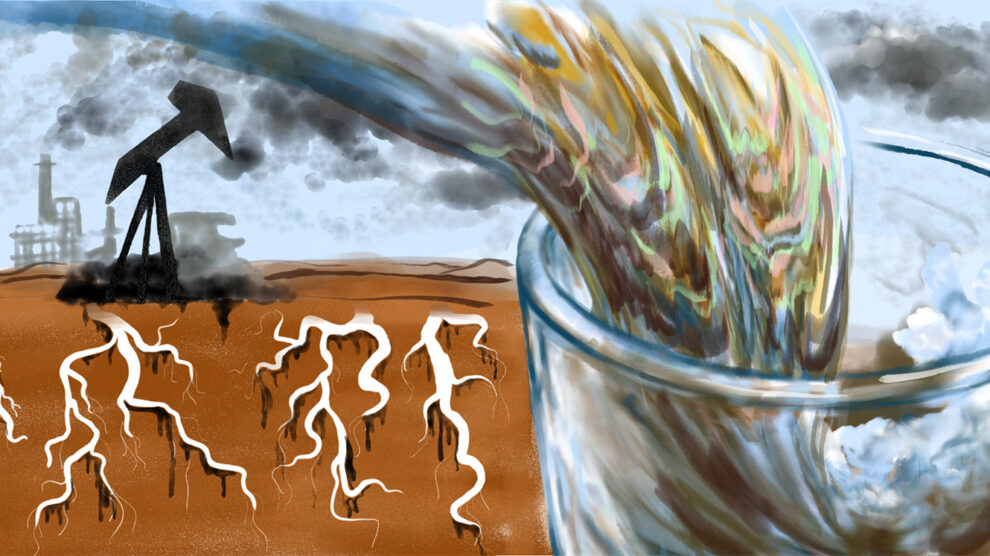October 29, 2020
#ShutDownSTEM and #StrikeforBlackLives: Struggling for Racial Justice in STEM
An Interview with Particles 4 Justice
By Dante O’Hara

#ShutDownSTEM #strike4blacklives was an organized work-stoppage by members of the Particles for Justice collective. The event took place throughout the academy in the United States and around the world to facilitate conversations about anti-Black racism, how it affects their Black colleagues, and actions to address these deeply rooted issues within their workplaces and beyond. In the interview below, we speak with the strike’s organizers to learn more about how it was implemented and their vision for future anti-racist struggles in science, technology, engineering, and mathematics (STEM).
Particles for Justice Interview
- MB: Matthew Buckley, Rutgers University
- DC: Djuna Croon, TRIUMF
- DH: Daniel Harlow, Massachusetts Institute of Technology
- TMPT: Tim M.P. Tait, University of California, Irvine
- GW: Graham White, TRIUMF
- TTY: Tien-Tien Yu, University of Oregon
- CPW: Chanda Prescod-Weinstein, University of New Hampshire
- DO: Dante O’Hara (SftP)
DO: Can you give readers a sense of what the #shutdownstem #strike4blacklives work-stoppage was for and what you hoped for out of the action?
TTY: Academics do not live in a vacuum and it is important to acknowledge the impact of current events, and the history leading up to them, on our communities. When we ask why there are so few of an underrepresented minority group in particle physics (my field), the answer is usually “because there is a leaky pipeline” or “students need to be inspired.” The answer is rarely “because our system is set up in a way that does not allow Black physicists to thrive.” The #strike4blacklives and #shutdownstem work-stoppage was meant for us, as a community, to take a hard look at the structure of our academic systems and understand how they partake in anti-Black racism.
CPW: I hoped that non-Black scientists (and academics more generally) would take the day to engage in action and make long term plans to stay engaged, and I hoped Black scientists would take the day to do whatever they wanted.
DO: There was impressively widespread participation in #strike4blacklives. Why did you decide on this tactic and how did you organize scientists to participate?
DC: The Strike for Black Lives website went live with the strike statement on Friday June 5th, five days before the strike. Before that, we emailed the strike statement to roughly one hundred colleagues to gather initial support. After that, we allowed scientists and other academics to pledge to strike on our website. We decided on this tactic unanimously and organically — what helped was that most of us have organized a community action with a similar timeline before.
CPW: I proposed that we call it a strike as a reference to the Global Women’s Strike. We knew that anything longer than a day might not get much traction, but we also felt some kind of work stoppage was practically and symbolically important.
DO: What relationships are there between the #strike4blacklives and labor organizing? Were faculty and graduate student unions among those organized in this action? How does the labor movement outside of academia inform the call for the Strike for Black Lives?
DH: We did not seek explicit union involvement in the strike organization, but we did make sure that union members would be able to participate in our call in a private capacity.
MB: Speaking solely for myself, I viewed the call for action as rising out of the recognition that our field needs to acknowledge and make affirmative steps to correct for our failings in how Black scientists and aspiring scientists are treated.
Similarly, the way that young scientists and graduate students are treated is often abusive —economically and otherwise. Many of those abuses, especially the economic ones, have been ignored for many years based on racist, sexist, and classist assumptions of the background and resources of the typical future scientist as they enter graduate school, and so overlap with the #strike4blacklives. To be committed to the success of Black scientists, we must address these abuses, which will intersect with the legitimate complaints of non-Black graduate students. Since I am no longer a direct member of the group in question (graduate students), I should not speak for them on how they go about addressing their concerns, but just say that collective action and unionization are effective tools for those purposes.
TMPT: There was no formal coordination between the #strike4blacklives and any faculty or student labor unions. Some of the members of Particles for Justice have experience serving in graduate student unions, but none of us are graduate students at this time. The call for the strike advised participants to consult with their local union representation for how to strike in a way that was compliant with union requirements, and we heard informally that several unions responded positively.
CPW: I am grateful that some unions put an effort into finding ways to actively support the action, despite the legal barriers to their participation in work stoppages. It’s notable that sometime after, the SEIU picked up on the idea and also had a Strike for Black Lives. They didn’t reach out to us, so I am not sure how our action, which happened a month before theirs (and got international press) influenced their action. I didn’t see their action gain traction among academics though, and I didn’t see involvement from our primary union organizations like UAW and AAUP. There’s a bifurcation there that I’d like to see dissolved.
DO: This action explicitly linked the power STEM workers have as workers to action and inaction on structural and systemic racism. How do you see the interlocking forces of racism and capitalism manifesting with STEM and amidst the global uprisings?
DH: Racism is certainly intertwined with politics and economics around the world, but the focus of our action was on local change that is possible on a relatively short timescale.
CPW: I think for each member of the Particles for Justice collective, this is a personal question. It’s hard to give a short answer to this but I discuss this in my forthcoming book The Disordered Cosmos: A Journey into Dark Matter, Spacetime, and Dreams Deferred, which is now available for preorder, out March 9. The short answer I can give is that technology—and I mean that word broadly—is often an important tool for people in power, and that was true before racial capitalism became a thing, and it is still true. Scientists do have to carefully think about the power this gives us, and how we will use it.
DO: What did you see happen during the #strike4blacklives? What progress was made and what were the limitations?
DC: Many institutions around the world organized big discussion sessions and reading groups on the day, and some initiated a regular meeting afterwards. It put the issue on the agendas of colleagues who normally do not engage in it. There have also been several cross-institutional discussions organized in the aftermath. However, preventing institutions from going back to “business as usual” is a constant struggle.
CPW: The most disappointing thing that I saw was departments leaning on Black scientists and staff to take the lead in having essential conversations. There were also clearly a lot of people who didn’t read the documentation we put on the site carefully. That said, I heard about work stoppages and actions on multiple continents, and that was heartening. I also saw elite departments take this very seriously and do things that twenty years ago we never could have imagined them doing: sitting down and talking about what they would do to confront systemic racism. Do I think this is a dramatic revolution? No. But do I think this had a different rhythm than “business as usual”? Absolutely.
DO: What specific actions would you like to be taken in the future to address anti-Black racism within academia, national labs, and science and tech industries? How do we center Black and Indigenous struggles more within the confines of these structures without isolating ourselves?
GW: Many of the actions we listed on our website can continue to be done after the strike and many of us will continue to donate, self educate, and brainstorm individual actions we can do. Since we all have different views, we are cautious to endorse specific actions. However, many of us have been heartened by some detailed action plans to confront anti-Black racism in their departments. Finally, one point of consensus amongst us is the need for more Black faculty hires.
CPW: I think Change Now Physics has presented a great set of recommendations. Importantly for me, I want to see physicists recognize that change outside of physics is necessary to truly change the inside of physics.
DO: One part of the call for a strike was that Black people in STEM spend the day nourishing their/our hearts. Do you practice self-care? What do you recommend for Black, Indigenous, and People of Color (BIPOC), women, trans folks, gender non-conforming folks who are suffering from the anxieties from the super-exploitation they experience every day and within their workplaces (in STEM)? What are the political implications of these practices?
TTY: We encourage folks to take a look at our first set of links under “Resources” on our webpage, which are under the heading Self-Care Information for Black People. As for the political implications, Audre Lorde said it best: “Caring for myself is not self-indulgence, it is self-preservation, and that is an act of political warfare.” I cannot help others if I do not take care of myself.
CPW: As a Black queer femme physicist, I know I need more care, but I also feel like a lot of the time I am compelled to “take one for the team.” Although it’s probably not healthy, I hope my decision means that people who come up after me will have it somewhat easier. I think they do in some ways. It’s definitely easier for them to identify people who are like them in the field and to get advice about how to navigate the paths that they are on. I know to a student reading this that could sound outrageous because it’s still so hard. But it used to be even worse, is the point. I hope that they will use the little bit of freedom to move what the elders have created and actually take care of themselves. I do make a point of spin cycling every day, and that’s been great for me physically and mentally. I know I need to set a better example of self-care because there are elders who fought for me too.
—
Dante O’Hara, PhD is a postdoctoral researcher in materials science based in Washington, D.C. He received his doctorate in 2019 from the University of California, Riverside. Dante is an organizer and member of the National Society of Black Physicists and Science for the People.





